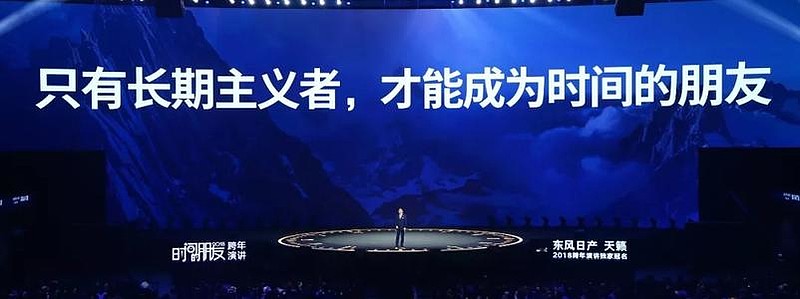
一.三种短期主义者
I. Three short-termists.................................................................................................................................
有三种非常典型的“短线思维者”,分别是:机会主义者、速成主义者以及犹豫的人。
There are three very typical “short-line thinkers”: opportunists, quickists and hesitants.
1、机会主义者
1. Oportunists
什么样的人是“机会主义者”?
What kind of people are “opportunists”?
它说的是那些 一看到市场上的某个发财机会,就想大捞一笔、捞完就走的人。他们想要的是跳过“播种、施肥、浇水”的过程,直接就能收获花朵与果实的人生;或者说,他们想要的是快速的,不必花费力气就能实现的“财富自由”。我周围就有这样的“机会主义者”,不论什么“风”来了,他都要掺和一下。房价上涨时,他买房子,比特币上涨时,他买比特币,P2P火爆时,他买P2P。但不论哪一种投资方式,他其实从未真正搞懂过。
It's about people who, when they see one of the rich opportunities in the market, want to make a lot of money and go away. They want to skip the process of sowing, fertilizing, watering. They want to reap flowers and fruits directly; or they want to be quick, and they don't have to work hard. There's an “opportunist” like that around me, and whatever the “wind” comes, he gets mixed up. When the house prices rise, when the bitcoin rises, when the p2P explodes, he buys the P2P. But whatever the way he invests, he's never really understood it.
所以,到现在为止,他们中的任何一位,都没实现想要获得的财富。
So, by now, none of them has achieved the wealth they want.
2、速成主义者
2. Rapidists
坦白的说,很多年前的我就是一个典型的速成主义者,总是想要更快实现升职加薪的目标,让家人过上我所期待的生活。那时的我,总是心急火燎,却忘记了真正应该关注的事。
Frankly, I was a typical fast-tracker many years ago, always trying to achieve the goal of a promotion and a salary increase faster for my family to live the life I wanted. At that time, I was always anxious, but I forgot what was really to be cared for.
太想成功,是因为没有想过其实一生是足够长的,所以路应该一步一步的走,馒头应该一口一口的吃。如果想要几步走完马拉松,或是一口吃个胖子,必然就会带来意想不到的问题,甚至是极为严重的挫折。后来回首,自然早已明白其中缘由 -没有长期主义的信念,但又很想成功,所以就会急功近利,总是处于焦虑之中。
To be successful is not to think that life is long enough, so the road should be one step at a time, and the bun should eat one bite at a time. If you want to walk a few steps through a marathon, or eat a fat one, you will inevitably have unexpected problems, or even a very serious setback.
那么,焦虑又会带来什么呢?
So, what does anxiety bring?
焦虑会让一个人产生对自己、对周围环境、对老板的不满,于是就很难沉下心去学习和成长,于是也就很难做到十分投入的工作,甚至会产生非常多的抱怨。而工作上的缺乏投入、对老板和环境的抱怨,又会给想要获得的短期成功带来更大的阻力,最后短期成功便愈发变得遥遥无期,而这种遥遥无期的感觉只会更进一步的加剧我们的焦虑。
Anxieties can cause a person to become dissatisfied with himself, the surroundings, and the owners, and it is difficult to learn and grow, and it is difficult to do a very dedicated job, or even a very high number of complaints. Lack of input at work, complaints about the boss and the environment, in turn, can create more resistance to the short-term success that is desired, and the short-term success becomes increasingly elusive, and this sense of distantness will only further exacerbate our anxiety.
这就是一个非常典型的朝着“快速崩溃”而去的增强回路。持续演变下去,最后的你很可能会成为一名“严重抱怨者”。既无法在自己预想的时间内达成想要的目标,同时又放弃不了这个目标,于是就将注意力转移到了抱怨上。就这样日复一日的养成了严重抱怨的坏习惯,最终成为了一个被老板和同事贴上“爱抱怨”标签的人。
This is a very typical boosted return to a “quick collapse.” As you continue to evolve, you are likely to become a “serious complainer.” When you cannot achieve what you want in the time you want to do without giving up on it, attention is shifted to complaining. So, day after day, it becomes a bad habit to complain, and eventually becomes a person who is labeled “complaints” by the boss and colleagues.
3、犹豫的人
Three, the hesitant one.
什么是“犹豫的人”?
What's a "hesitant man"?
这类人其实有点像:想要上船前往某处,但又担心船可能到不了自己想去的地方,于是就一脚踩在船上,一脚踩在码头的地上,一直“凑活着”、“等待着”、“不确定活着”的人。这类人既无法彻底放弃想要到达的地方,又无法下定决心走上船去,于是就这么一直犹豫着。他们不知道的是:在任何时候,任何人的未来都不具有100%的确定性。所有未来只有在发生的时候,也就是变成“现在”的时候,才有100%的确定性。
It's kind of like, trying to get on a boat somewhere, but worried that the boat might not reach where it wants to go, to step on the boat, to step on the docks, to be “living”, to be “waiting” and to be “unsurely alive.” Such people are so hesitant that they can't give up where they want to be completely or decide to go to the boat. What they don't know is that at any time, no one's future is 100 per cent certain. All futures are 100 per cent certain only when they happen, that is, when they become “now”.
既然不存在,那就只有一个方法去实现 - 那就是创造。创造自己想要的未来绝非易事,很多人正是因为把它想得太过简单,没有抱持“长期主义”的信念,认为它应该立刻出现,所以在“想要实现未来”与“无法立刻实现”之间最终走向了旷日持久的“犹豫”。
If it does not exist, there is only one way to do it -- that is, to create. It is not easy to create the future that you want, and many people think it too simple, not because they believe in “long-termism” and believe that it should emerge immediately, so there is finally a long-lasting “heavy” between “wanting to achieve the future” and “not immediately”.
环顾四周,你会发现,有的人在工作上是“犹豫的人”,于是他们在工作时很难真正投入,他们总是在“等待着”什么,也许是加薪的许诺,也许是升职的可能,但在获取这些许诺与强大可能之前,他们难以真正投入。有的人在爱情上是“犹豫的人”,因为害怕得不到自己想要的爱情与亲密关系,于是畏手畏脚,不敢去爱,或者是就算爱了也很难完全投入,爱的非常“犹豫”。有些人干脆就是人生的“犹豫主义者”,他们无法活在当下,他们总是活在对于未来100%确定性的期待里,活在对未来不确定性的恐慌与焦虑中。
Looking around, you find that some people are “hesitant people” at work, so it's hard for them to be really involved at work, and they're always “waiting” what, perhaps promises of a raise, or a possibility of a promotion, but they're hard to be really involved before they get these promises and possibilities. Some people are “hesitating people” at love, because they fear not being able to get the love and intimacy they want, they fear not to love, or, even if they do, it is hard to be fully engaged, and love is very “hesitating.” Some are simply “hesitating” in life, and they cannot live in the present, and they are always living in a 100 per cent certainty of future expectations, in fear and anxiety about future uncertainty.
这些都会带来什么样的后果呢?后果一:无法全情投入当下、感受当下、享受当下。后果二:无法真正有效的创造未来。
What are all these consequences? Consequences one: inability to invest in the moment, to feel it, to enjoy it. Consequences two: inability to really create the future.
以上三种就是最为普遍的“短线思维者”的思维模式与行为方式,而不论哪一种,都会给我们带来人生成就的阻碍,以及各种各样的情绪困扰
The three are the most common modes of thought and behaviour of the “short-line thinkers”, which, in any case, create obstacles to our human achievement, as well as all kinds of emotional distress.

二.长期主义者案例
ii. The long-termist case
1.朱元璋高筑墙广积粮缓称王
1 . Chu Won-joo built a wall full of grain to be known as the King
在朱元璋称帝之前,所奉行的策略是朱升提出的高筑墙、广积粮、缓称王。高筑墙是指加强军事防备,巩固后方;广积粮是指发展经济生产,储备粮食,增强经济实力;缓称王则是指不要过早称帝,以免树敌过多。这三条建议极具战略眼光,是朱元璋发展初期的指导思想。
The strategy followed was to build the wall, the grains, and the kings. The wall is to strengthen military preparedness and consolidate the rear; the grains are to develop economic production, reserve food, and strengthen the economy; and the kings are to refrain from calling the emperors prematurely, so that there is no excess of enemies. These three proposals are very strategic, and they are the guiding ideas of Chu’s early development.
主席都评价朱升:九字国策定江山。
The President evaluated Chu Li: the nine-word country has decided the way it is.
我们看《朱元璋》电视剧可以深刻看到这一策略的最难的是称王。
The most difficult thing about this strategy is to be called king.
2.曾国藩的结硬寨、打呆战
2. Stiflers of the great kingdoms. >/b>
曾国藩曾经说过一句很有名的话“结硬寨,打呆战”,意思就是任何时候都按照最稳健的做法去做,在看透本质,做好结构化建设的前提下,稳扎稳打,慢慢地一步步走向胜利。
The great King once said a famous phrase, “Standing hard and fighting dumb”, which means doing it at all times, according to the most robust approach, with a view to understanding the essence, building up the structure, taking a steady and gradual step towards victory.
具体来说,就是湘军所到之处,首先就是修墙挖壕,比如营寨的墙要高八尺厚一尺,墙外再挖沟,壕沟深六尺,比一个人还要高,壕沟外是花篱,花篱要五尺,还要埋入土中两尺,花篱有两层或者三层。打仗时,湘军经常是挖几十里的深沟,而且不是挖一道,而是二、三、四、五、六道。由于太过于执着挖壕沟,湘军更像是个工程部队。
Specifically, it is where the thugs arrive, first of all, to dig trenches, for example, if the fence is eight feet thick, if the wall is six feet thick, if the ravine is six feet deep, if it is a man, if the thug is five feet taller, if it is two feet deep, if there are two or three layers. In the war, the thugs often dig tens of miles deep, not one, but two, three, four, five or six. The thugs are more like an engineering unit because they are too determined to dig the thugs.
3.巴菲特滚雪球
3. Buffett rolls snowball
巴菲特说:“回顾我77年的投资历史,成功很大程度只是搭上了美国经济的顺风车。”巴菲特,在过去77年的漫长投资中,最高一年的收益也不过是59.3%。真正让巴菲特傲视群雄的,其实就是复利效应,年均20.3%的回报,因为投资时间足够长,最终也取得了7584倍的超高回报。因此巴菲特也掷下过名言:“复利就像从山上滚雪球,最开始雪球很小,但只要滚的时间足够长,最终雪球也会很大。”
Buffett said, “Respecting my 77 years of investment history, much of the success has been in the United States economy.” Buffett, in his long investment of the past 77 years, the return of the highest year was only 59.3 per cent, which really made Buffett proud of the group, but which was a compound effect, 20.3 per cent a year, because the investment was long enough and ultimately 7584 times higher. So Buffett was famous for saying, “Multill is like rolling snowballs from the mountains, and it's very small in the beginning, but it's gonna be big in the end, if it's long enough.”
4.段永平本分
4. Divisions of
“第一,做个胸无“大”志的人
"First, be a man who doesn't have a big heart."
首先要强调的是,这里的“大”是好大喜功的大。所谓胸无“大”志,指的是脚踏实地的做事态度。我们要胸无“大”志地去做自己喜欢的事情。同时,还要努力去喜欢自己在做的事情。我觉得,只有在做自己喜欢的事情的时候,才能激发自己最大的潜力,所以每个人首先要花很大精力去寻找自己喜欢的事情。同时,我也要强调后面一点,喜欢自己在做的事情。大学刚毕业就马上找到自己喜欢的事情,是可遇不可求的。很多时候,当我们投入到自己的工作中后,会慢慢找到很多乐趣,在努力的过程中,会渐渐发现自己喜欢做什么。所以,努力喜欢自己做的事情很重要。胸无“大”志,需要大家慢慢体会。
First of all, it's great to stress that “big” here is a great deal of pleasure. The term “big” refers to the attitude to do things on the ground. We're going to do things that we like without greatness. At the same time, we're going to try to like what we do. I think it's only when we do what we like, so everyone has to put a lot of energy into finding things that they like. At the same time, I want to emphasize that I like what I do.
第二,做个有所不为的人
And two, be the one who doesn't make a difference.
我们有句话叫做“有所为,有所不为”。我们常常注意到要“有所为”,但我要强调的是“有所不为”。我很早就听说过,要做对的事情,然后把事情做对。在经历了这些年,经历很多次的头破血流之后,我才真正开始明白这句话是什么意思。所谓做对的事情,就是知道是错的事情决不要做,知道做错了马上要改。这个说起来容易,做起来困难。知道做错了马上改,不管多大的代价,到最后往往是最小的代价。我看到很多人明知是错,犯了错之后抱着侥幸的心态,浪费很多年之后最后要付出更大的代价。希望大家不要碰到这样的情况。很多人问我,为什么我们公司在消费电子领域这么多年之后一直存在,我们就是守诚信、平常心、坚守本分。本分就是有所不为的意思。把事情做对,本身是个学习的过程,这个过程当中是要犯很多错误的。有种说法“不怕犯错误”,我们做对的事情时,要避免犯错,但把事情做对的过程中会犯很多错误,这个大家要理解。还有个说法“永不放弃”,就是要坚持对的事情,如果是错的事情,要立即回头。
We used to say, "Do something, do something," but I want to stress, "Do something." I've heard it a long time ago, do things right, and then do things right. After all these years, after a lot of headbreaks, I really started to understand what that means. The right thing is to know what's wrong and what's wrong and what's wrong and what's wrong and what's wrong. It's easy to say, and it's hard to do it. To do it right, it's a learning process, it's always the least price. I see a lot of people who know that they're wrong, they're wrong, and they're wasting a lot of years after they've done it.
第三,做个正直的人
Number three, be an honest man.
无论能否做到以上两点,但最基本的是要做个正直的人。我不知道做个正直的人,会有什么回报,但至少让人一生坦然。
Whether or not these two things can be done, the basic thing is to be an honest man. I don't know what it's worth to be an honest man, but at least it's a life-long open.
我就讲这三点,大学毕业是我们进入社会大学的起点,我们要学习的东西是无穷无尽的。最后,衷心祝愿每一位同学都能找到属于自己的精彩人生。”
Let me just say three things: college graduation is our starting point for social college, and what we're going to learn is endless. And finally, I wish every classmate a wonderful life of his own."

三.做个长期主义者
iii. Be a long-termist
《财经》小晚在访谈中曾提到:“一些投资人和创业者说,我们尊敬并喜爱陆奇,但我们并不看好他做的事。因为中国已经过了创业周期的红利期了。”
“Some investors and entrepreneurs say that we respect and love Lu Qi, but we don't like what he does, because China has passed the dividends of the business cycle.”
陆奇答道:“当初我决定做YC中国,我所有的中国朋友几乎都反对,没有一个人支持。这对我来讲一点不奇怪,某种意义上反而是我的论证。
Lu Qi replied: “I decided to be YC China, and almost all my Chinese friends were against it, and none of them supported it. It's not surprising to me, in a sense, but it's my argument.
一件值得去做、长期有价值的事,不被人理解是必然的。如果被所有人理解,你肯定做不大,因为所有人都想做一样的事情,那他们将全是你的竞争对手。”罗振宇说:“任何一个人,不管你的力量强弱,放眼于足够长的时间,你都可以通过长期主义这种行为模式,成为时间的朋友”。
It is inevitable that something worthy of doing and of long-term value will not be understood. If everyone understands it, you will not do much, because everyone wants to do the same thing, and they will all be your competitor.” Rho-Jin-woo said, “Anyone, no matter how powerful you are, looks for a long enough time, you can be friends of time through a long-termist pattern of such behaviour.”
可以说,成为长期主义者,是我们普通人的通天之路。
It can be said that being a long-termist is the path of our common man.
做时间的长期主义者,有四个方面:
There are four ways to be a time long-termist:
1、优势积累效应,是长期主义者的依仗
1. Accumulation effects, long-termists.
指数增长的特点是,初期进步龟速,能力在短时间内几乎不可能实现大幅度的提升。事实上,很多时候,不管你付出多少努力,你可能都感觉不到自己有多大的进步。然后,直到某一天,你突然福至心灵,感觉自己打通了奇经八脉,突破了某个长期存在的阻塞,接下来,你开了挂,蹭蹭蹭地起飞,技能提升越来越快。
The exponential growth is characterized by the initial rate of progress, which makes it almost impossible to achieve a significant increase in capacity in a short period of time. In fact, in many cases, no matter how hard you try, you may not feel much progress. Then, until one day, you suddenly feel blessed with your heart, feeling like you've broken through a biography, breaking a long-standing barrier, and then you hang around and take off, and your skills are growing faster.
哪些技能遵循指数增长呢?比如,一些技术的进步,一个人的写作水平,一个公众号的阅读量和粉丝的增加,物理研究。。。当你做符合指数增长模式的事情时,最怕的是刚开了个头,看不到变化,就急着给这件事情画上句话。这就是我们通常说得“浅尝辄止”。无论是对数增长的平台期,还是指数增长的开始阶段,背后其实都是一个原理在运作:优势积累效应。
What skills follow exponential growth? For example, technological advances, a person’s level of writing, an increase in the reading and fans of a public number, physical research. When you do something that fits the exponential growth pattern, the most afraid is to start with something that doesn’t change. That's what we usually say. The platform period of logarithmic growth, or the beginning of exponential growth, is actually one of the principles behind it: the cumulative effect of the advantage.
2、做长半衰期的事,让时间放大努力
2. Do something with a long half-life. Make time to zoom in.
半衰期越长,收益衰减的速度就越慢,比如,你花了一个小时,和朋友认真沟通,增进了你们之间的感情,在之后的几个月,甚至几年里,这个收益仍然存在于你和朋友之间。
The longer the half-life, the slower the rate of loss of earnings, for example, you spend an hour communicating with your friends in good faith, and the more you feel, the more the next few months, and even years, the more the gain remains between you and your friends.
再比如,你用一周时间,认真阅读了一本书,改变了自己的认知和思维方式。这个改变就是你的收益,它会持续影响你之后人生中对待问题的方式,以及做决策的方式。我们要多做的事情,第一种是高收益值、长半衰期,第二种是低收益值、长半衰期。想成为时间的朋友,就要先学会筛选优先投入时间做哪些事情,少做哪些事情,以及坚决不做哪些事情。做到这一点,才能在时间的长河中,收获高价值。这些高价值,会形成“优势积累效应”,从最初一个一个的小优势,累积成你的大优势,最终累积出一个别人望尘莫及的你。
And, for example, you take a week to read a book, and you change your way of thinking and thinking. This change is your gain, and it will continue to influence the way you deal with problems in your life. The first thing we do is to do more, with a high yield, a long half-life, a low yield, a long half-life. To be a friend of time, we have to learn to sift out what to do, what to do and what to do, and what to not do. To do that, in the long river of time, we can reap a high value. These high values will create a “building effect” that will build up from one of the first small advantages, a great advantage, a great advantage for you and, ultimately, one that no one else can see.
3、用平淡无奇,打败瞬间的妙手
Three, beat the hand of the moment with a light hand.
比如,在斯诺克台球中,并不看重个体单次动作多精彩。真正重要的是,你能持续性的连续击球。你的这一杆,实际上要为下一杆击球做好准备,这样才能保持连续性。这就是“通盘无妙手”的意义,每一个动作可能看似平淡无奇,最终却威力惊人。
For example, in Snoke pool, it doesn't matter how good a single individual action is. What really matters is that you can keep on hitting. Your stick, actually, needs to be ready for the next one, so that continuity can be maintained. That's what it means to be a "one-size-fits-all hand," every move that may look flat and, eventually, amazing.
它强调得是做时间的长期主义者,不追求单次的极致效果,而是追求单次动作最终累加出的精彩。
It focuses on long-termists who do time, not on individual extreme effects, but rather on individual moves that ultimately add up.
我们每个人想成为真正的长期主义者,就要明白,以及能够做到,不追求单次努力达到惊天地泣鬼神的效果,更不会到处找寻所谓的秘方、秘诀,而要把自己的全部努力,看成是一个大动作的前奏。
Each of us, in order to be a true long-termist, must understand, and be able to do, not to pursue the effects of a single effort to shock the heavens and the earth, not to look everywhere for the so-called recipes and secrets, but to see all our efforts as a prelude to a big move.
4、摒弃功利主义,发展人生系统
4. Rejecting utilitarianism and developing a system of life
在《把时间当作朋友》一书里,提到自己10岁的时候,曾经参加了一个计算机学习班,若干年后,在编写《TOEFL核心词汇21天突破》过程中,因为得益于自己略多于常人的计算机知识,能够在短时间内,就完成了写书中“批处理脚本”的海量工作。而这本书,后来成为了长销书。从2003年出版后,每年至少销售4万册,带来的收入已经超过了100万元。李笑来认为,如果没有这些计算机技能,自己很难完成同样质量的作品,即使花更多的时间。这个技能,就得益于他小时候一次毫无功利之心的学习。和他同期的两个小伙伴,一个没有报名就放弃了,一个学到途中放弃了,因为认为学计算机“没什么用”。
In the book Time as a Friend, when it was mentioned that he was 10 years old, he had been involved in a great deal of work at 缺乏“系统思维”的人,总是从此时此刻,去衡量一件事情到底有没有价值,不懂得把这件事情,放在人生大系统中去衡量。所以,他们经常放弃“看起来无用”的事情,可以说是典型的“功利主义者”。少点功利主义,多点系统思维,你的人生系统,才有可能发展得更好。 People who lack “systemic thinking” always measure from this moment on whether something is worth or not, and do not know how to put it in the larger system of life. So, they often give up what seems to be useless, a typical utilitarian. With less utilitarianism, more systematic thinking, and your system of life, it is possible to develop better. 资料来源: Source: 1.《陆奇,59岁,创业者:真正的高手,都是时间的长期主义者》 “Lucky, 59 years old, entrepreneur: real masters, long-termists of time” 2.《真正的高手都是“长期主义者”》 "The real masters are long-termists." 3. 《段永平浙江大学演讲》 3. Tsiyongping Zhejiang University Lecture
注册有任何问题请添加 微信:MVIP619 拉你进入群

打开微信扫一扫
添加客服
进入交流群


















发表评论